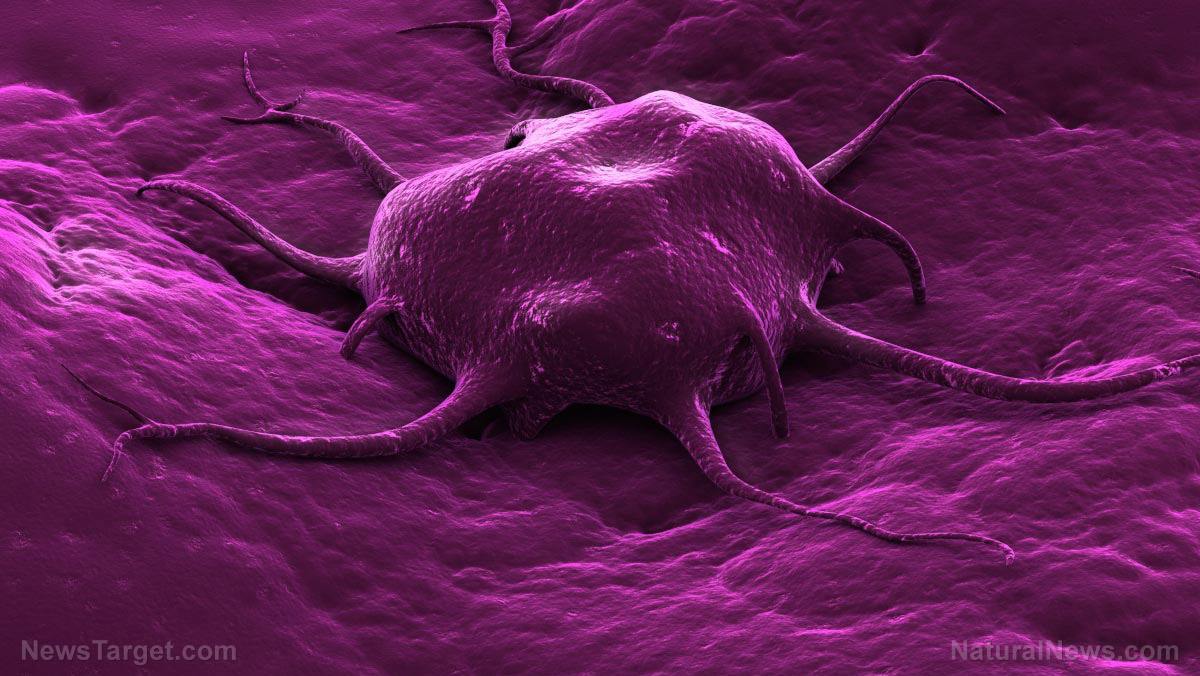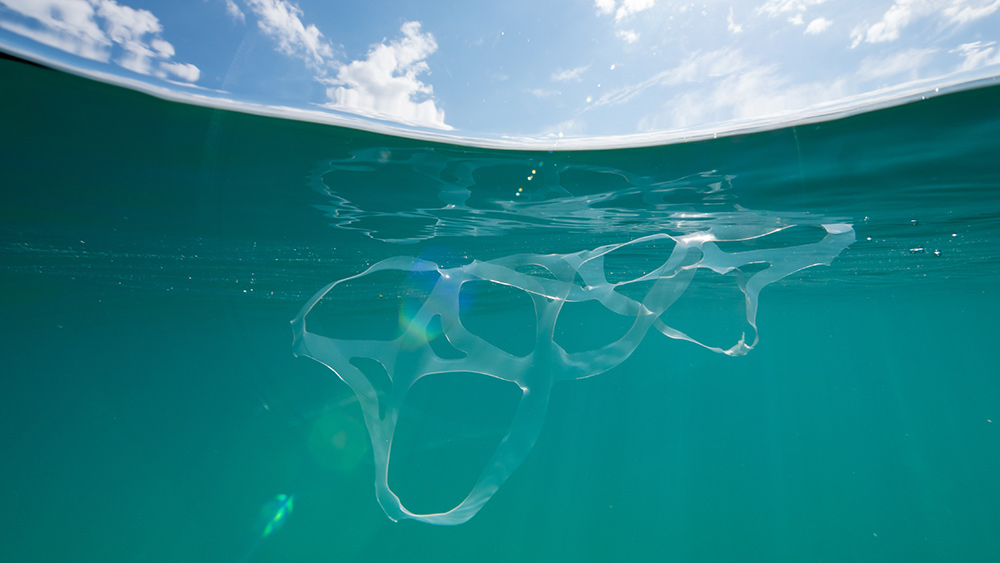 Parler
Parler Gab
Gab
Lose excess weight
Have a bit of excess fat? It's time to get moving because losing excess weight can help reduce your risk for cancer, experts have said. A report by the Centers for Disease Control and Prevention (CDC), this is because excess weight and obesity are associated with an increased risk of developing any of the 13 types of cancer which account for about 40 percent of all cancer diagnoses in the United States.Control your alcohol intake
While the consumption of certain alcoholic drinks such as red wine has been linked to several benefits such as good cardiovascular health, the American Cancer Society (ACS) says alcohol use accounts for about six percent of all cancers and four percent of all cancer deaths in the United States. This is backed up by a study published by the National Institute on Alcohol Abuse and Alcoholism (NIAAA), which found that even lower levels of consumption still result in a moderately increased risk for various cancers. This means that you should slow down whenever you get served a glass of wine -- too much of a good thing is bad, after all.Eat yogurt and other fermented dairy products
Aside from being a good and delicious source of probiotics and protein, did you know that yogurt can also help stave off the development of certain cancers in the body? A study published in the medical journal Medical Hypothesis, this is because the good bacteria present in yogurt displaces the harmful microorganisms and other pathogens in the breasts, thereby curbing the inflammation usually caused by the latter. A study published in JAMA Oncology, meanwhile, found that people who regularly consumed yogurt were 19 percent less likely to develop lung cancer compared to those who do not. According to senior author Xiao-Ou Shu of the Vanderbilt-Ingram Cancer Center, this can be rooted in the probiotic strains in yogurt that have antitumor and anti-inflammatory activities.Engage in regular physical activity
Want to decrease your risk of developing cancer? Get moving! According to the World Cancer Research Fund (WCRF), this is because vigorous physical activity such as running or fast cycling has been shown to help lower the risk of several types of cancer, not to mention that of other serious diseases such as diabetes and heart disease. As noted by the WCRF, adults should get at least 150 minutes of moderate-intensity activity such as brisk walks, or 75 minutes of vigorous activity each week, in order to fully experience its anti-cancer benefits. In a report, the WCRF pointed to several possible mechanisms behind the activity’s anti-cancer properties, such as its ability to decrease inflammation and body weight, as well as decrease oxidative stress and enhance the body’s DNA repair mechanisms.Incorporate more fiber into your diet
Dietary fiber is an umbrella term for carbohydrates found in plants that have been linked to many health-supporting benefits, including a reduction in your risk for developing certain types of cancer. This anti-cancer ability can be traced to two specific mechanisms: the first is that dietary fiber prevents the accumulation of toxins in the gut by helping expel waste from the body. The second is that it functions as a food source for the beneficial bacteria that make up the gut microbiome. As noted in several studies, bacteria, when processing fiber, release a compound called butyrate, which in turn helps the cells in our bowel to stay healthy, so that tumors are less likely to develop. As noted by the American Institute for Cancer Research or AICR, getting at least 30 grams of dietary fiber each day as part of a healthy diet can help lower your cancer risk. Want to load up on dietary fiber? You can start by swapping out white bread for its whole-grain variant!Avoid smoking cigarettes and using tobacco products
Tobacco kills approximately 6 million people each year, mainly from cancer and other diseases. This is because tobacco smoke has more than 7,000 chemicals, at least 250 of which are known to be harmful, with more than 50 confirmed to be carcinogenic. As noted in several studies, tobacco -- whether smoked or chewed -- has been linked to several cancers, such as that of the lung, mouth, throat and larynx. It has also been linked to cancers of the pancreas, bladder, cervix and kidney.Protect yourself from excess sun exposure
Sure, an even, golden tan looks lovely but did you know it can actually harm you? This is because radiation from the sun -- the same kind that gives our skin that lovely, sun-kissed look -- can actually cause your to develop skin cancer. Skin cancer is the most common type of cancer, with more than 9,500 people diagnosed with skin cancer every day in the United States. Fortunately, it is also the most preventable. Since radiation from the sun is the main cause of skin cancer, the most effective way to stave off this cancer from developing is to shield yourself from the sun. This can be done by avoiding the outdoors at midday, regular usage of sunscreen and by avoiding tanning beds and sun lamps.Avoid environmental pollutants and carcinogens
Some carcinogens are relatively easy to avoid, such as tobacco smoke and solar radiation. However, some carcinogens are harder to avoid, such as the pollutants present in the air, water and food. These are called environmental carcinogens. Of these, air pollutants such as particulates and industrial emissions are the most potent. According to records, outdoor air pollution contributed to 3.2 million premature deaths worldwide in 2012, of which more than 200,000 were caused by lung cancer. As noted by experts, other environmental carcinogens include asbestos, plutonium, silica dust, coal tar, mineral oils, coal emissions, formaldehyde and aflatoxins or dioxins. Cancer is one of the most prevalent diseases in the world as of present. Despite that, it is still relatively easy to prevent -- provided of course that you're willing to pursue a healthier lifestyle. Find more ways to avoid -- and effectively treat -- this dreaded disease at AntiCancer.news. Sources: Cancer.gov DailyMail.co.uk CDC.gov Cancer.org Pubs.NIAAA.NIH.gov MedicalXpress.com Reuters.com WCRF.org AICR.org SkinCancer.org ScientificAmerican.com NTP.NIEHS.NIH.govStudy shows antioxidants in cheese may protect blood vessels from salt damage
By Rose Lidell // Share
Deborah Birx hid covid info from Trump, altered CDC guidelines without approval
By Ethan Huff // Share
Germany’s birth rate improbably falls by 11% in the first quarter of 2022
By Lance D Johnson // Share
By Mary Villareal // Share
Governments continue to obscure COVID-19 vaccine data amid rising concerns over excess deaths
By patricklewis // Share
Tech giant Microsoft backs EXTINCTION with its support of carbon capture programs
By ramontomeydw // Share
Germany to resume arms exports to Israel despite repeated ceasefire violations
By isabelle // Share










